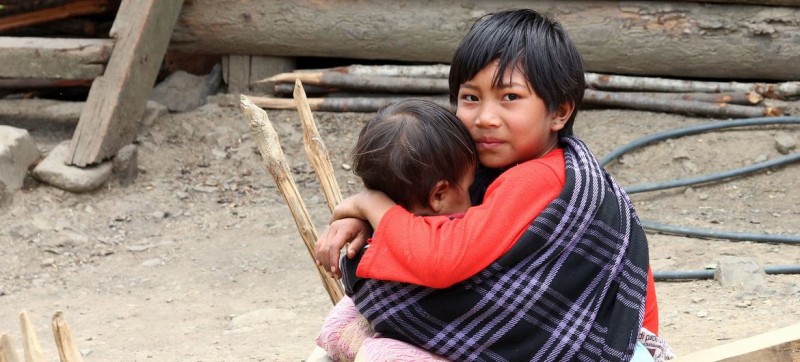Contents
A child looks after his younger sibling in Myanmar. Myanmar’s military junta is responsible for shocking violence against children caught up in the bloody aftermath of last February’s coup, a top independent Human Rights Council-appointed investigator said on Wednesday. Three months since his last update to the UN rights forum in Geneva, Special Rapporteur on the situation of human rights in Myanmar, Thomas Andrews, said that he’d met youngsters who’d fled the country after suffering “irreparable harm”. Myanmar – whose seat was empty in the Council – “passed several grim milestones since March”, he continued: “more than 2,500 civilians have now been killed in the junta’s bloody campaign against its opponents; over one million people are now internally displaced.” Empty seat
At the @UN Human Rights Council, Tom Andrews, the @RapporteurUn on #Myanmar, said he believes the authorities' "repeated attacks on civilians amount to crimes against humanity and #WarCrimes."
FULL STATEMENT ▶️ https://t.co/NtwRtRDQ5k#WhatsHappeningInMyanmar #HRC50 pic.twitter.com/p3QA29b9pF
— UN Human Rights Council (@UN_HRC) June 29, 2022
The number of arbitrarily detained political prisoners now exceeds 11,000, Mr. Andrews said, before warning that the junta “has announced that executions will soon begin of political prisoners who have been put on death row”.
Amid widespread public opposition to Myanmar’s de facto rulers, the independent rights expert described how the military had “trained its guns on growing numbers of villagers and other non-combatants” and “accelerated a brutal campaign of arson and murder in the northwest.
Children killed and maimed
The task of reporting on such abuses has been complicated by internet shutdowns which “which, of course is the intention, the very intention, of the military”, Mr. Andrews said, before describing in detail the abuse meted out to youngsters suspected of having links to opposition fighters.
“At least 382 children have been killed or maimed; more than 1,400 children have been arbitrarily detained…142 children have been tortured since the coup.”
He added: “These children have been beaten, cut and stabbed; they have been burned with cigarettes; they have had their fingernails and teeth pulled out; they have been forced to hold stress positions; they have been subjected to mock executions; they have been sexually assaulted.”
War crimes charge
Such crimes and “repeated attacks on civilians” constituted war crimes and crimes against humanity, insisted the Special Rapporteur, who is an independent and unpaid rights expert, appointed by the Human Rights Council for three years, in line with special procedures mandates.
Failure to take action soon risks an even worse humanitarian crisis in Myanmar, where relief work has been seriously hampered because the UN’s 2022 Humanitarian Response Plan for Myanmar is only 10.5 per cent funded. “This has meant that lifesaving programs have had to be suspended,” Mr. Andrews explained.
Neglected
Some “33,000 children could die of preventable deaths this year alone, merely because they have missed routine immunizations,” the Special Rapporteur added. “Five million children require urgent humanitarian assistance. Experts warn of a looming food crisis and the possibility of a dramatic increase in rates of childhood malnutrition and stunting.
“Physical and sexual abuse, the trafficking of children and child labour are all on the rise. Girls are particularly vulnerable to forced marriage and sexual exploitation.”
When will the Security Council act?
After insisting that the international community’s approach to Myanmar “is not working”, Mr. Andrews urged the Security Council to take action.
“The people of Myanmar continue to wait for the Security Council to even consider a resolution about Myanmar,” he said. “Some Members have failed to impose sanctions on the junta, even when they have done so in response to other crises. Member States who have adopted sanctions have too often failed to strategically coordinate these sanctions. Many have failed to target the junta’s largest sources of revenue and their ability to move funds. ASEAN’s Five-Point Consensus has failed to generate any tangible outcomes.”




Comments are closed, but trackbacks and pingbacks are open.